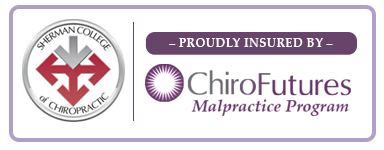
There is no doubt that the single biggest piece of advice that I give new graduates is to learn as quickly as possible how to establish a direct pay (cash) practice. I also give this advice to older practitioners as well, but much of the time they are too set in their ways to make a change. While I believe going cash will bring you a great deal of relief from all the headaches that third party pay brings with it, I also know from experience that many chiropractors believe that the regulatory burden with cash is less than with insurance.
In some ways that is true.
But in many others it is not.
For example - historically, state regulatory boards have viewed cash practices with a wary eye. Many boards are controlled by chiropractors who are not too keen on lifetime, family, subluxation, wellness care.
I have seen my fair share of nightmares where boards target subluxation chiropractors to make examples out of them. I have also seen regulatory boards stick their noses into the contractual relationships between chiropractors and their patients.
One way they do this is by adopting state regulatory rules that mandate a prescriptive process for offering pre-pay plans. The chiropractors on these state boards have argued that they are forced to develop these onerous rules because they get so many complaints from consumers about unethical practices in regards to pre-pay plans.
The fact is that all states already have extensive rules addressing unprofessional conduct so the additional rules for pre-pay serve some other purpose. In my experience they only serve to give the board more control over the doctor/patient relationship extending it to financial contracts between the parties.
I do not believe a regulatory board has any business sticking its nose into the financial agreements between providers and patients but they do it anyway.
So what does this mean for you if you are enaging in pre-pay plans?
First and foremost check your state law, rules and regulations, board policies etc and see if there is any language in them that addresses pre-payment plans.
If there is - Follow these to the letter.
I cannot stress this enough. If the board has gone as far to enact an entirely separate rule to address financial contracts then you really want to pay attention to it and do exaclty what they require.
Make sure you understand that just because a patient is paying by cash or credit card you still have to follow the law and rules in your state regarding recordkeeping, documentation, coding etc.
You also still need to follow all Federal laws that govern your practice - HIPAA for example. I recenlty heard a prominent speaker in chiropractic brag that he doesn't worry about HIPAA because he is all cash.
Nonsense.
Where chiropractors get into the most trouble with pre-pay is when a patient stops care and wants a refund of the amount not used. Or even wants all their money refunded.
Follow the law and rules in your state on this but this is also where your contract with the patient should be explicit in its description of your refund policy.
One last bit of advice on patients requesting refunds. I understand that you work hard for your money and its very frustrating when you provide a service and the patient wants their money back after the fact.
Or you extend credit to a patient, provide care and they don't pay you.
I feel your pain.
Here's the thing you want to ask yourself though: Are my records perfect?
It is a very easy thing for a patient to file a board complaint against you. And I've already told you that many of these boards are not subluxation, pre-pay, friendly. Once a board has a complaint they have entry into your practice world and tend to ask for all kinds of things including other patient files to look under your hood and kick your tires.
If your patient and business records are PERFECT that's one thing. But if they aren't make sure you understand what you are opening yourself up to with the board, what they might find and if what they find could escalate beyond a local level to a Federal level.
Remember that the duty of the board is to protect the public health - not the practitioner.
As always I look forward to your feedback, questions and concerns.
Matthew McCoy DC, MPH
CEO & Co-Founder
ChiroFutures Malpractice Program
drmccoy@chirofutures.org
http://www.chirofutures.org
800.219.9090
